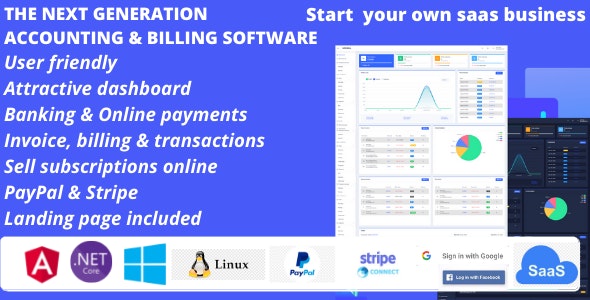
Life science consulting has a great career outlook, but what are the prerequisites for success? Here we will discuss the necessary skills and costs, as well as the scheduling and career outlook. Once you have this information, it's time to move on to the next stage. This article will show you how to get started in your life science consulting career. Let's discuss the options! It will be a great decision. Here are some of the benefits to becoming a consultant.
Career outlook
Life science consultants have a generally positive career outlook. High job satisfaction is a bonus, as well as a feeling of accomplishment. A life science consultant can make a real contribution to improving human health. This field will see a faster rate of career growth than other professions. International travel is also possible in this field. Below are some of its most important benefits. You can read on to learn about the careers available within this field.
After completing a postdoctoral fellowship at a German-based cancer research institute in Germany, Dr. Bialojan entered the pharma business. She is now a leading life science consultant. Her career path has seen her transition from academia to industry. This allowed her to combine her existing knowledge and skills with newfound expertise. After earning her doctorate, she is a sought-after industry consultant.

Skills required
Life science consulting is a rewarding career that offers a bright future. This field may be familiar to you, but you might not know what it involves. This field requires the same skills and education as other jobs. Find out what you need to be successful in each type of consulting. This profession will challenge you and reward you with high salaries and a dignified job title.
To succeed in life science consulting, you should have strong analytical skills. You need to be able recognize industry problems and devise viable solutions. A solid understanding of commercial concepts and operating models is also a must. There are many schools and colleges that offer certificates in business. You should not only have technical skills but also a passion for your chosen field. You must also be open to learning new technologies and willing to try them out.
Costs
Most large companies have an ERP system, or other cost management tools in place. However, smaller companies are more likely to use spreadsheets to manage their expenses. Life sciences consultancies charge more because they sell at higher prices in the US than Europe. This creates a variety of problems for consultancies. For example, they may need to adjust their salaries to reflect European prices. Here are three examples of how consulting firms can help companies with their costs.
Companies in life science have seen major changes in their healthcare coverage. New rules about health insurance may result in the death of small bio-tech companies. Similarly, the trials and hurdles of the R&D process create significant costs and challenges for any size life sciences company. These expenses are an investment that should return the cost of launching a product. Companies that need expertise in a specific area of life science are well advised to consider hiring a consulting firm.

Scheduling
Managing a project or team can be a daunting task. Life sciences leaders must prioritize and plan activities in order meet deadlines. This will help them avoid mistakes and disruptions. Scheduling life science consulting is one way to ensure that everyone has the time they need to complete their assignments. Here are some suggestions for scheduling life sciences consulting projects. Once you have defined the scope of your project you can begin to plan the tasks.
Identifying key stakeholders. Before you start a project, identify the key stakeholders. This will allow you to effectively communicate with them, establish milestones, and define ownership. It is vital that communication is maintained throughout the entire project. Many life science workers don't have the space or time to meet with other stakeholders regularly. Life science consulting professionals can help maintain constant dialogue and ensure that everyone gets the necessary information.
FAQ
How much does it cost for a consultant to be hired?
The cost to hire a consultant depends on many factors. These include:
-
Project size
-
Time frame
-
Scope and nature of work
-
Fees
-
Deliverables
-
Other considerations such as experience level, location, etc.
What is the difference of a consultant versus an advisor?
An advisor is someone who provides information about a subject. A consultant provides solutions to problems.
To help clients achieve their goals, a consultant works directly with them. Clients are referred to advisors through books, magazines and lectures.
How do I choose the right consultant?
There are three main factors to consider:
-
Experience - How skilled is the consultant? Are you a beginner or an expert? Is her resume a proof of her skills and knowledge?
-
Education - What did he/she learn in school? Did he/she take any relevant courses after graduating? Is there evidence that he/she learned from the writing style?
-
Personality - Are we attracted to this person? Would we like him/her to work with us?
-
These questions are used to determine if the candidate is right for us. If you don't have clear answers, it may be worth meeting with the candidate for an interview.
What kind of jobs are there for consultants?
Consultant work requires a deep understanding of business strategy, operations, and other aspects. Understanding how businesses work and their place in society is also essential.
You must have excellent communication skills as well as the ability to think critically in order to be a consultant.
Because consultants may be required to perform different tasks at different times, they must be flexible. They must be flexible and able to change directions quickly if needed.
They must be prepared to travel extensively for the clients they represent. This type of work can take you all around the globe.
They need to be able and able to manage pressure and stress. Sometimes consultants are required to meet tight deadlines.
Consultants are often expected to work long hours. This can mean you might not always receive overtime compensation.
What should I expect from my consultant
You should hear back from your chosen consultant within a few days. They will request information about your company including its mission and goals, products, services, budget, and other pertinent details. Next, they'll provide a proposal describing the scope and estimated time frame, fees, deliverables or milestones, as well as an estimate of costs.
If everything is in order, then the parties will enter into a written contract. The type of relationship between them (e.g. employer-employee or employer-independent contractor) will determine the terms of the contract.
If all goes well, the consultant will start working immediately. You will have access both to your documents and internal resources and the consultant's skills and knowledge.
However, don't assume that just because someone is a consultant that s/he knows everything. It takes effort and practice to become an expert in whatever field you consult. You shouldn't expect your consultant will know everything you need to know about your business.
Statistics
- "From there, I told them my rates were going up 25%, this is the new hourly rate, and every single one of them said 'done, fine.' (nerdwallet.com)
- On average, your program increases the sales team's performance by 33%. (consultingsuccess.com)
- According to statistics from the ONS, the UK has around 300,000 consultants, of which around 63,000 professionals work as management consultants. (consultancy.uk)
- WHY choose me: Why your ideal client should choose you (ex: 10 years of experience and 6-week program has helped over 20 clients boost their sales by an average of 33% in 6 months). (consultingsuccess.com)
- Over 62% of consultants were dissatisfied with their former jobs before starting their consulting business. (consultingsuccess.com)
External Links
How To
What is a typical day for a consultant?
A typical day will vary depending on the type of work you are undertaking. But generally speaking, you will spend time researching and planning new ideas, meeting clients, and preparing reports.
Meetings are a common way to discuss problems and issues with clients. These meetings can be held over the telephone, online or face-to face.
It is possible that you will be asked to write proposals. These documents outline your ideas and plans, and are required by clients. You will need to discuss these proposals with a mentor or colleague before you present them to clients.
After all the preparation, you'll need to start creating content. You might be creating articles, videos, editing photos, writing interviews, or designing websites.
Based on the scope and complexity of the project you may need research to obtain relevant statistics. It may be necessary to know how many customers are currently using your products or services.
Once you have all the information needed, it is time for clients to see your findings. Your findings can be presented orally or written.
After your initial consultation, you should follow up with your clients. For example, you could call your clients periodically to check how things are going. Or send them emails asking them to confirm they have received the proposal.
This process takes time, but it's important to ensure that you stay focused and maintain good relationships with clients.